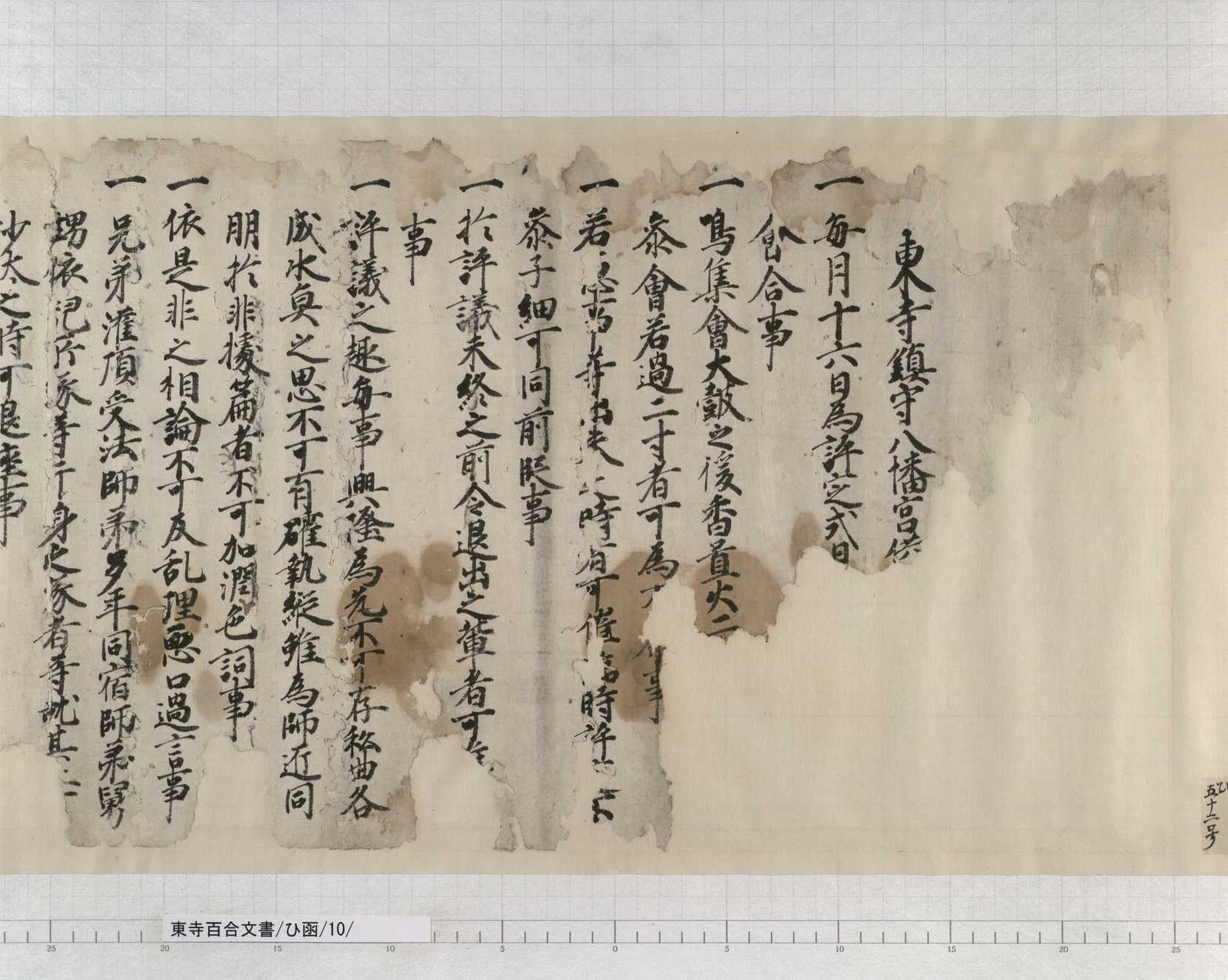The monastic organizations established within Toji were operated independently and each organization decided important matters in meetings called hyojo (評定). The documents of Hyakugo Monjo show how hyojo was organized by leading members of the organization, who were referred to as kuso (供僧).

The document above shows the rules of hyojo conducted by Chinjuhachimangu-kata (鎮守八幡宮方). According to the document, hyojo was to be held on the 16th day of every month, and being late for or leaving early from hyojo was prohibited. The document also reveals that when the subject of a meeting was related to a kuso member’s family or relatives, or a master or pupil who lived with the member, the member was not allowed to attend the meeting. There are signatures of kuso monks at the end of the document, indicating these rules were decided by them. Although the document bears a large number of signatures, the 30th signature counting from the signature under the date and thereafter were added later.

The document above shows the rules of hyojo of Gakushu-kata (学衆方). If a member was too late for hyojo, the member’s kuryo (供料, rice given to monks as pay) would be cut (the first article.) The members were prohibited from being late for hyojo when important matters were discussed (the second article); although kuso members of Gakushu-kata included monks of other temples, this rule also applied to members who lived outside of Toji. If a member left hyojo before it was adjourned, the member’s kuryo would also be cut (the third article).